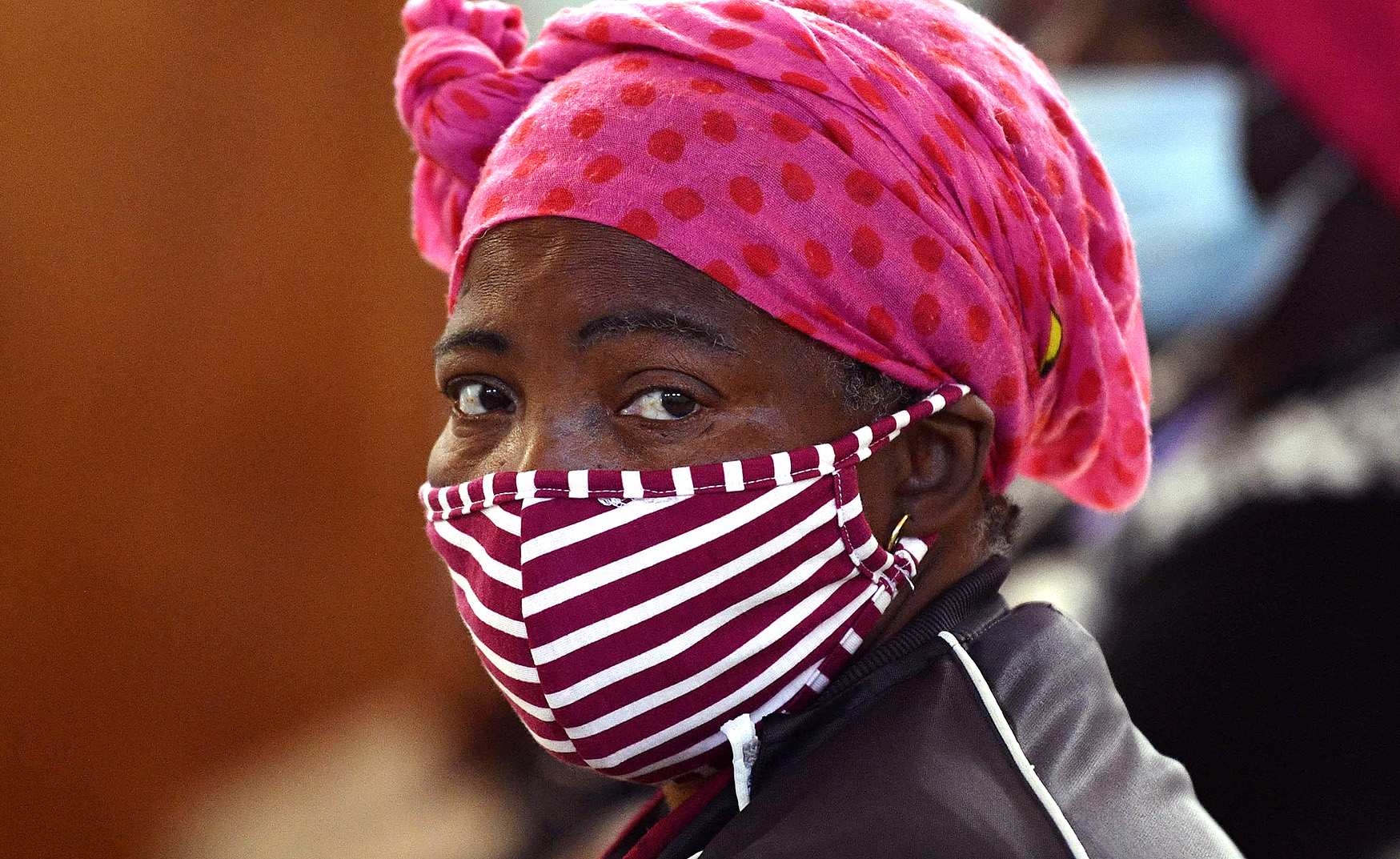In the United States, according to a study by Gallup, only 47% of Americans “usually or always” wore a mask in an “outdoor setting” (though the figure rose substantially when asked about “indoor settings”).
The UJ-HSRC survey asked: “When you leave your home, how often are you wearing a mask?” After weighting, which ensured findings were closely representative of the country’s adult population, these were the responses:
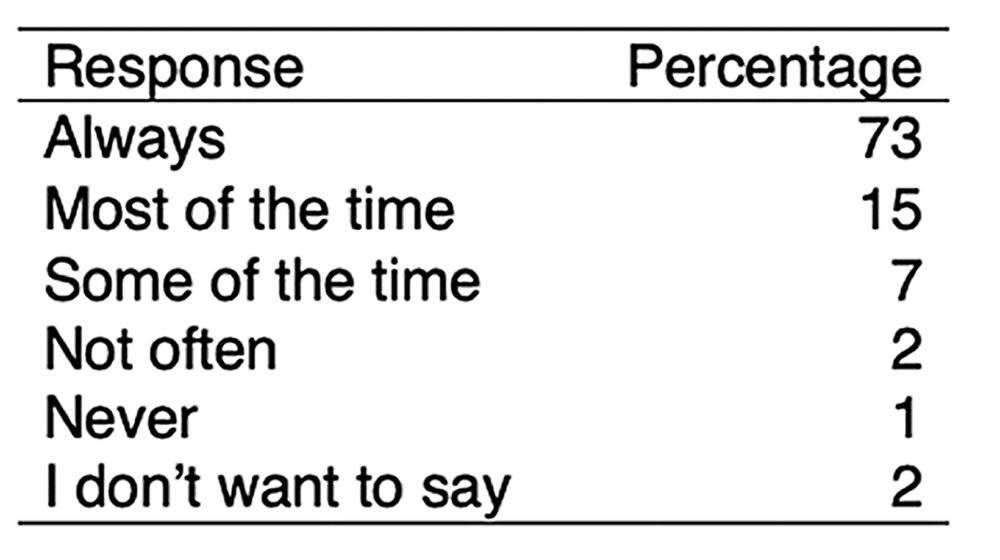
These are self-reported findings, and there might be a temptation to offer a culturally acceptable response. But the same was true with the US survey, so, concerning mask-wearing, South Africans are more likely to act responsibly.
While the figure for those who said “always” might still seem unacceptably inflated, especially for readers familiar with townships, three factors should be considered. First, people hanging out on a street are unlikely to be typical, and visual assessment can give a false impression. Second, it is well established that respondents are more likely to disclose personal information in an online survey, like ours, than in face-to-face interviews (see, for example, here). Third, as we will see, figures vary considerably depending on demographic category.
Our main interest below is in who is more likely to wear a mask. To simplify comparisons, and maintain a focus on compliance with regulations, we limited ourselves to percentages of people who gave the “always” response. Age, income and type of residential area were especially interesting and significant.
Age matters
As illustrated in the graph below, older people are more likely to report that they always wear a mask when they leave their homes. Age is a strong and consistent predictor, with a 15 percentage-point differential between the two older cohorts and the youngest.
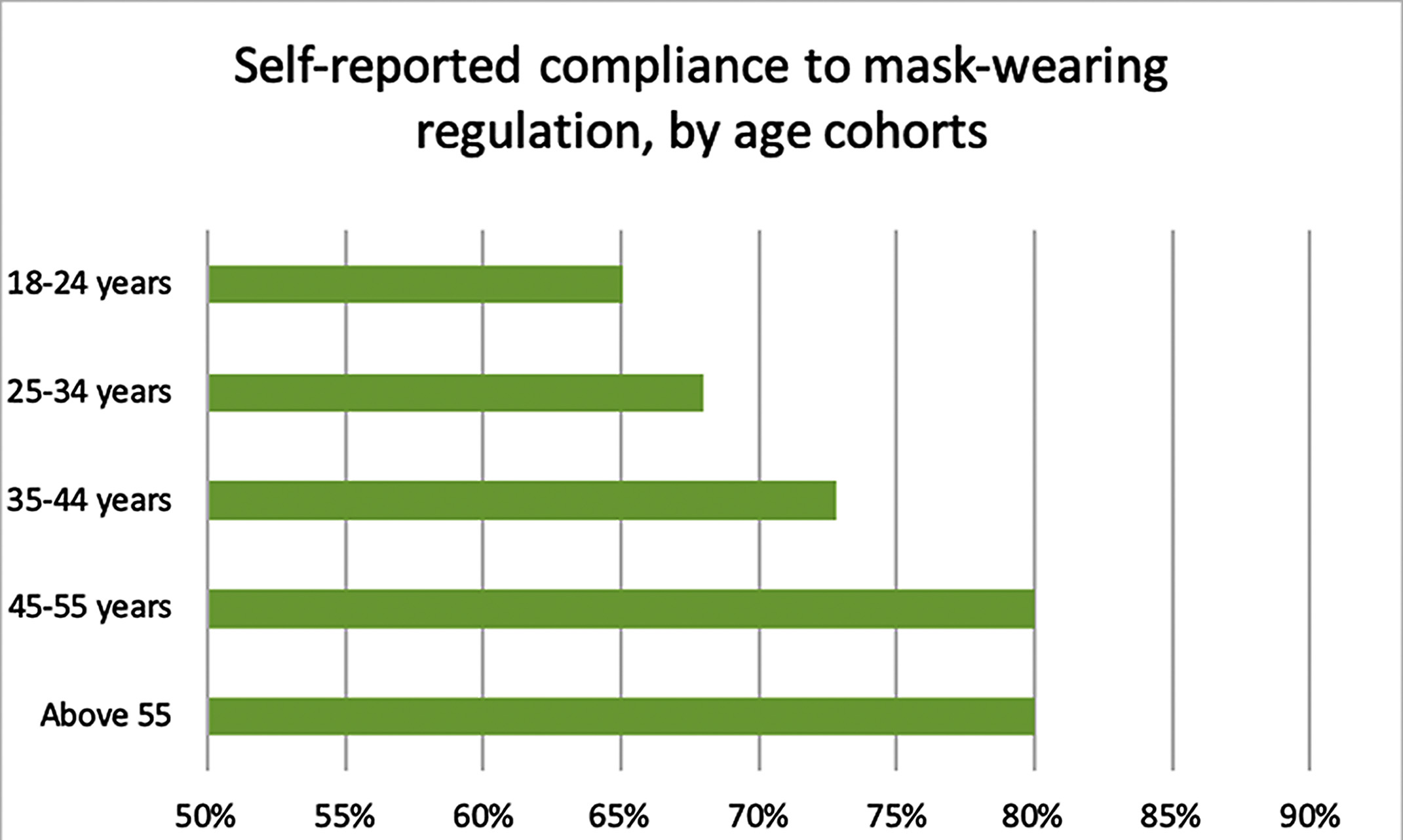
An explanation of this differential is probably related, in part, to an Ask Afrika finding that the main reason people wear a mask is “to protect myself”, with far fewer people saying “to protect others”. This popular reasoning is at odds with scientific logic that the main benefit of mask-wearing is to protect non-infected people from wearers who are infectious. The belief that masks provide substantial protection to wearers creates a false sense of security, leading to lack of adherence to other protocols, such as physical distancing and hand-washing.
The findings from both surveys, ours and Ask Afrika’s, suggest that a high proportion of people focus on protecting themselves from death, rather than protection from infection. There is no doubt that older people are more likely to die from Covid-19, but infection is a different matter. The table below contrasts mortalities and confirmed cases of infections at the end of May 2020.
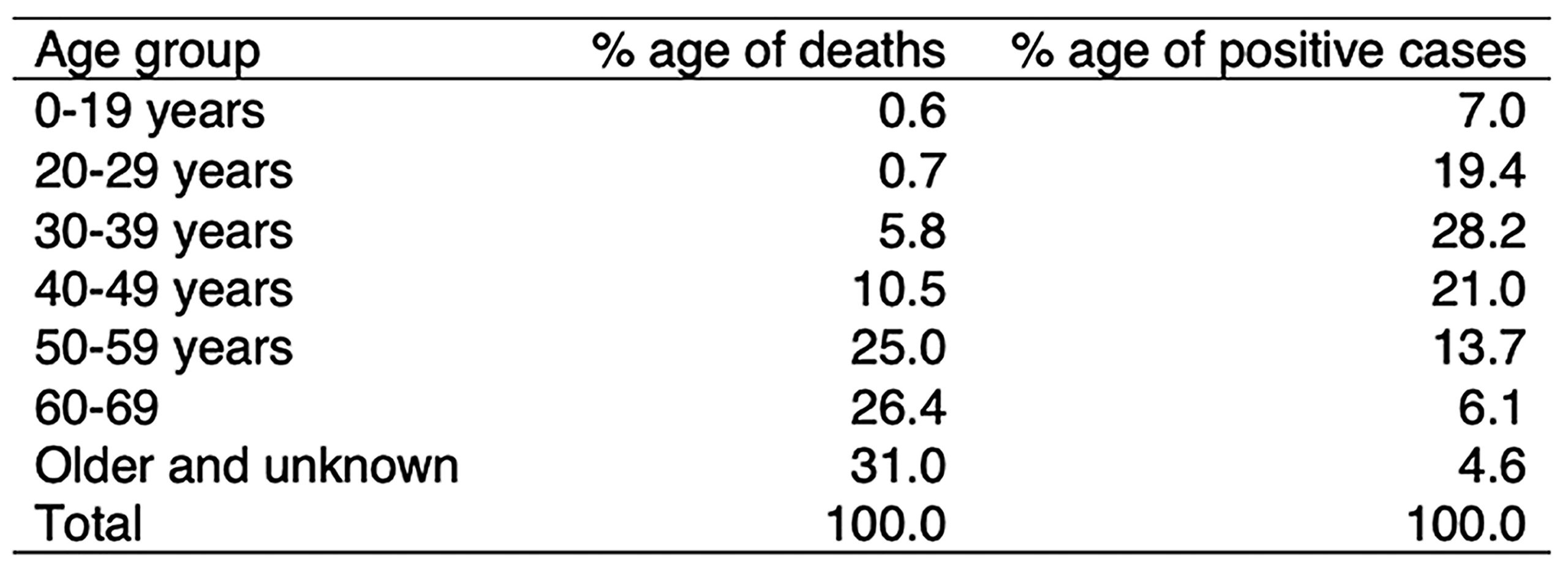
Among those who died, fewer than one in 10 were under 40, but among those confirmed as Covid-positive, more than half were under 40. Comprehensive testing would doubtless yield a higher proportion of positive cases in younger age groups.
If official statistics focused more on age and infection, rather than merely age and deaths, it is highly likely this would create more awareness of the threat Covid-19 poses to younger people (and, hence, their loved ones, particularly those who are older). It is reasonable to assume that improved awareness would lead to a higher level of “masking up” and fewer deaths.
For ethical reasons, our research excluded people who are 17 years or younger. However, given the trend demonstrated in these findings, it is probable that school pupils are even less likely to wear masks in public than young adults. This has considerable significance for the “great schools argument”.
Explaining differences can give a false impression. Even in our most recent questionnaire, most people reported wearing a mask in public, and one Eastern Cape woman in the 25-34 group told us: “Not having symptoms does not mean I do not have Covid-19, so to protect other people I must wear a mask.”
Income and education matter
With income, the difference between the group least likely to always wear a mask and the group most likely to do so was 20 percentage points – 67% for those on less than R1,000 per month and 87% for those on incomes greater than R20,000. See graph below. There is a dip associated with the R5,001-R20,000 per month group, but the general trend is unmistakable.
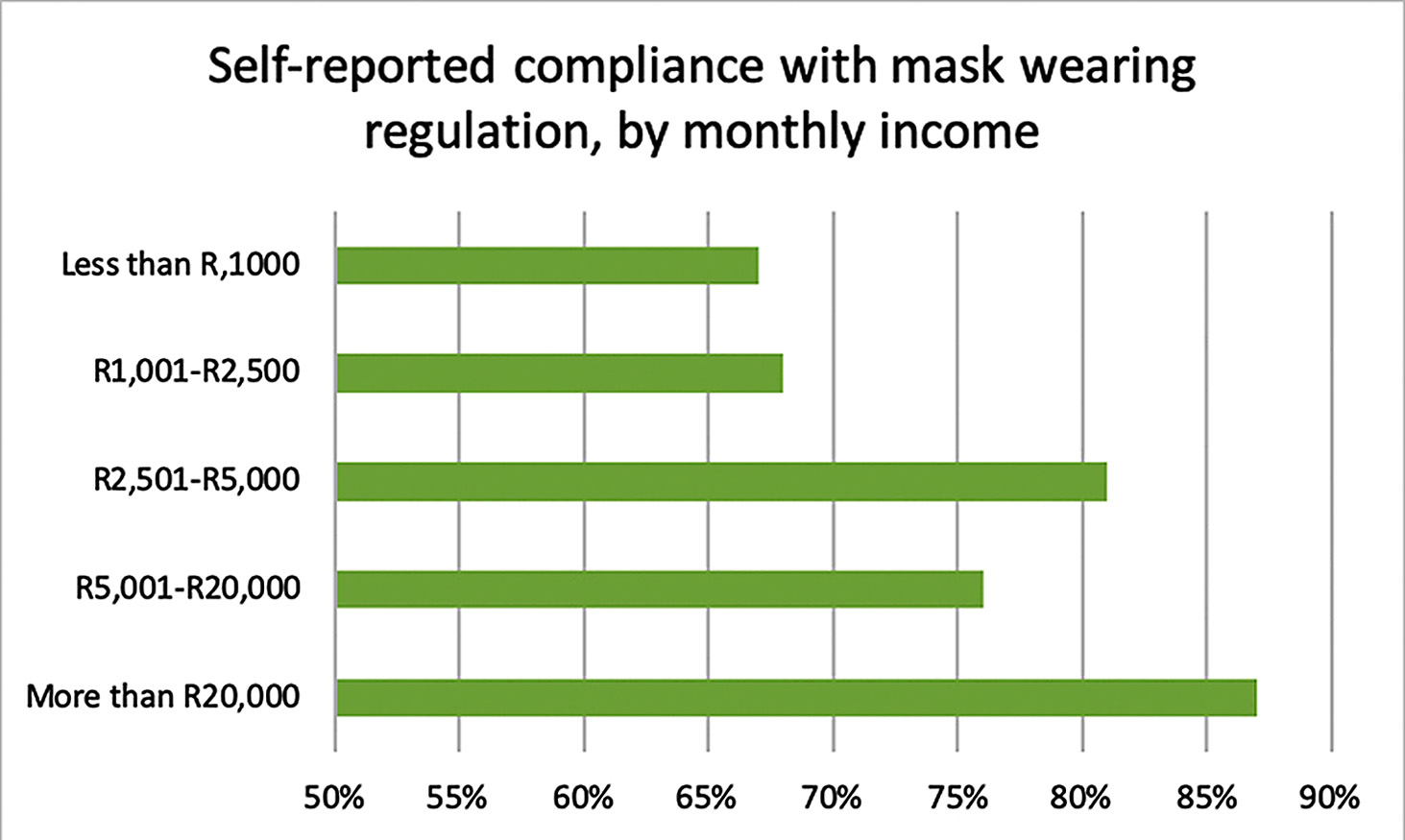
Greater compliance among high-income earners is associated with age. Younger people, those least likely to be compliant, earn less. Older people earn more.
High income is also associated with tertiary qualifications, with 64% of adults whose income is R20,000 or more per month also reporting they had a degree or diploma. Among those with tertiary education, 81% reported always wearing a mask.
With education, the trend is less clear-cut than for income, and adults with matric were less likely to wear a mask than those who only had some secondary education or just primary education. The difference between matrics and those with a tertiary qualification was 10%.
Similar patterns have been recorded with HIV infection, where the least likely to be infected are those who have tertiary qualifications and those with a high income.
There are, doubtless, multiple reasons why individuals with higher education and high income show a greater level of mask-wearing, but a common one suggested by people we interviewed is captured in this quote from a Gauteng male aged 35-44: “There’s a lack of public education when it comes to wearing a mask. This has made it difficult for people with less education to access this information, and, worse, some medical terms have been difficult for ordinary people to understand. …[E]ducated people are aware of the risk associated with not wearing a mask.”
This is just one opinion, but it points to problems of poor communication and lack of popular education, which have also been raised by opinion writers (see here, for example).
Type of residential area matters
Always wearing a mask varies according to the type of residential area, as shown in the graph below. There is a 13 percentage-point difference between the “all suburban category” and the “all township category”.
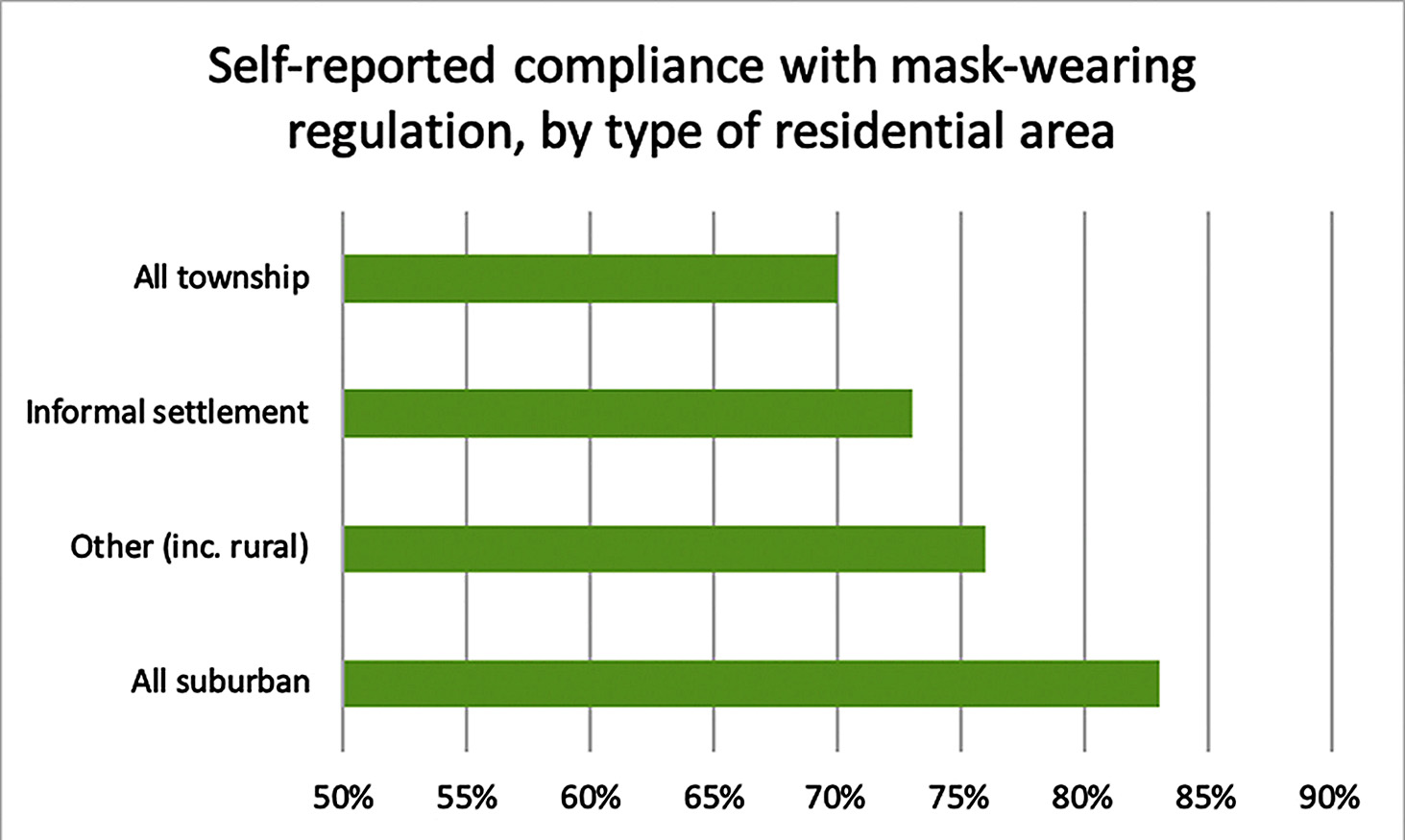
The four socio-spatial categories in the graph are derived from nine types of accommodation in the questionnaire. There is a starker contrast with the questionnaire categories, between 89% for “flat, apartment or townhouse” (part of the “all suburban group”) and 66% for “township or RDP house” (part of the “all township group”) – a differential of 23 percentage points.
There are strong associations between “all suburban” and higher age, high income and tertiary education, so the higher figure for mask-wearing in “all suburban” is unsurprising.
The unexpected finding is that public mask-wearing is more widespread in informal settlements (73%) than in townships (70%). Three percentage points is a small differential, but let us take age and income into consideration. Adults under 35 are much less likely to always wear masks than adults who are 35 or older. But while about half of township adults fall within the younger cohort, about three-quarters of informal settlement adults are in this category. In terms of income, this tends to be higher in townships than settlements. So, given what we know about the impact of age and income, one would expect mask-wearing to be more widespread in townships than in settlements, but the reverse is true.
Some possible reasons for higher compliance in settlements than in townships were suggested in interviews. These included:
“People in informal settlements… are aware of absence of space to self-isolate in case of infection, and they get harassed by law enforcement often enough that they wear masks to prevent any eventualities.” (Gauteng male, age not recorded).
“People in informal settlements are more aware of their vulnerability, and are not prepared to bear a risk burden in addition to ones they already carry. There is also residual community organisation in informal settlements… [In townships there is] also a strong anti-authoritarian streak and a mistaken belief that the risk of contracting Covid-19 is exaggerated.” (Gauteng male, 45-54).
“I do not wear [a mask] at all times when I’m here at home in the township… because of criticism, people judging you, saying ‘you are full of yourself’. You know the mindset of people in the township, believing we are all corona-free so there is no need… most people think they will not be affected in their neighbourhood… corona can be caught in busy places like the malls in town.” (KwaZulu-Natal male, 25-34).
As elsewhere, qualitative data has been added to promote discussion and suggest lines for further inquiry.
Implications
A recent study of 22 countries showed that mask-wearing is a very strong predictor of deaths per capita from Covid-19. Earlier research concluded that if 80% of a population wore masks, this would have a “significant impact” on reducing infections, but if the figure was only 50%, there was “minimal impact”. Clearly, these are rough figures, but it is reasonable to assume that the level of mask-wearing in South Africa has had a positive impact, though the level has been less than desirable.
Moreover, the extent to which masks are worn is very uneven. Adults living in suburbs are far more likely to always wear a mask when out in public than adults living in townships – 83% versus 70%. If the suburban adult is 45 years or older, has a tertiary education and an income of at least R20,000, the figure increases, probably to an average over 89%. If the township adult lives in an RDP or ordinary township house, is 24 years or younger, and has an income of less than R1,000, the figure declines, probably to less than 65%.
So far, our analysis has presented an argument in structural and objective terms, but there is nothing preordained about decisions. There are agency and subjective issues that require further exploration. Could messaging have been more effective? Could the police have done more to persuade people to wear masks in public?
Articles in Daily Maverick published as early as the end of March and the first week of April highlighted the capacity of grassroots activists to engage in effective public education among their peers. How would matters have been different if the state had gotten behind these valuable initiatives? DM/MC
Kate Alexander is a professor of sociology at the University of Johannesburg (UJ) where she holds the South African Research Chair in Social Change. Martin Bekker is a researcher at the Centre for Social Change at UJ and an independent development consultant. Samela Mtyingizane is a doctoral student and holds an internship with the Human Sciences Research Council. Thandeka Mcameni is an MA student and research assistant at UJ. Narnia Bohler-Muller is divisional executive in the Developmental, Capable and Ethical State research division at the HSRC and adjunct Professor of Law at the University of Fort Hare.
Data presented in this article is taken from the first phase of Round 2 of the UJ/HSRC Lockdown Survey, which was online from 3-17 July. The sample of 2,569 completed questionnaires was weighted by race, age and education. Readers are invited to complete the questionnaire, which is accessible using the #datafree Moya Messenger App on the #datafree biNu platform, or alternatively using https://hsrc.datafree.co/r/ujhsrc.
A summary of the survey’s Round 1 findings and a fuller explanation of methodology can be found here.
This article is more than 5 years old
South Africa
Masks – Who wears them and Why it matters
To what extent are South Africans complying with government regulations and World Health Organisation advice on wearing masks? This question was explored in the University of Johannesburg and the Human Sciences Research Council’s Covid-19 Democracy Survey.
